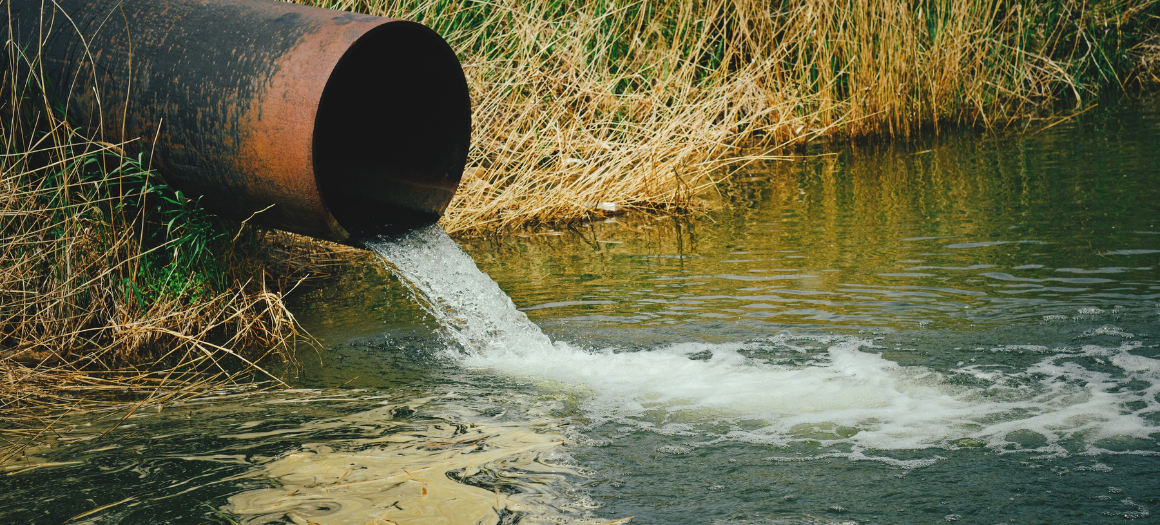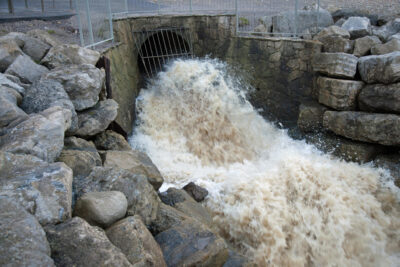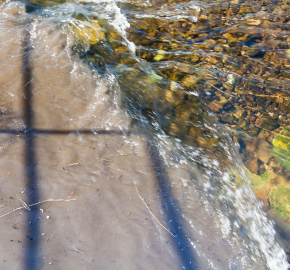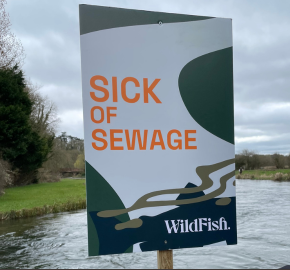WildFish has started a court action seeking to force the withdrawal and redrafting of the Government’s Sewage Overflows Plan

In 2021, raw sewage was dumped in UK rivers by water companies for over 3 million hours.
WildFish are campaigning for urgent action
The Government’s Storm Overflows Discharge Reduction Plan (The Plan) is supposed to show how the government will deal with sewage pollution from storm overflows, but:
- It is confusing and contradictory.
- It fails to deal with the overflows that are causing the problem.
- It sets targets which would allow water companies to continue dumping unacceptable amounts of raw sewage over a prolonged period, in some cases up to 2050.
The cause of the problem
The laws to deal with the problem have been in place for many years. The underlying cause of the current problems is the continued failure of the water companies to comply with the duties imposed on them, and the government, to properly enforce them. The Plan does not deal with this.
WildFish argues that the Plan is unlawful on the grounds that: it approves continuing unlawful conduct, fails to take into account the existing law, breaches the Habitats Regulations, and is irrational. WildFish has instructed leading environmental law barrister James Maurici KC and Charles Bishop of Landmark Chambers, and Fieldfisher LLP, to bring the challenge.
“Years of underinvestment and absent regulators have got us where we are today with widespread illegal sewage discharges. If The Plan is intended to deal with illegal discharges, it is unlawfully encouraging law breaking for years to come. If it is not intended to deal with these illegal discharges, it is irrelevant.”
Nick Measham
CEO, WildFish
Nick went on to say:
“We have no problem with The Plan being used to arrive at an initial rough estimate of the costs required to provide upgrades to storm overflows. However, its failure to deal with the vast majority of relevant outfalls and the production of sub-targets and headline targets, which have no basis in the application of the existing regulations, is unacceptable.”
The action is by way of a claim for judicial review against the Secretary of State for Environment, Food and Rural Affairs, presently Thérèse Coffey MP. The Environment Agency and Ofwat have been joined as “Interested Parties” as they are directly affected by the claim.
In summary the grounds are:
The Plan tacitly approves unlawful conduct and frustrates the existing legal framework:
- Most of the problem overflows are not complying with the existing duties and regulations which require for example that there be no overflows in all normal climatic conditions.
- The Plan sets out targets for water companies to improve overflows by 2035 (for priority sites) and 2050 (for other sites).
- In doing so, the Plan appears to accept that sewage overflows before those dates will continue to breach the current duties and regulations.
- Water companies will use those targets to argue against more rigorous enforcement and planning in accordance with the existing law.
The Plan fails take into account important matters:
- The Plan fails to take into account that a large proportion of the problem overflows are not complying with the law. It does not provide any response to those overflows, assess the extent of those overflows, or assess the extent to which those overflows could and should be reduced by enforcement of the existing law.
The Plan is in breach of the Habitats Regulations:
- The Plan purports to set targets for overflows which are having unacceptable and harmful discharges into European sites, yet there has been no “appropriate assessment” under the Habitats Regulations.
The Plan is Irrational:
- Although those parts of the Plan which set the targets are clearly drafted to apply to all overflows, another part of the Plan states that improvements to deal with nonconforming overflows are “outside the scope of the Plan”.
- If the Plan does not deal with nonconforming overflows then it does not deal with the majority of the problem overflows and is irrational, and not fit for purpose.




Wild fish have faced many challenges. It required better law and regulations
It is outrageous that this problem has continued for so long, lack of political commitment and reduced funding for environmental protection , has allowed this medieval practise to continue.
I totally agree with the previous comments. I worked in the water industry for forty-five years in total, mainly on waste water treatment works sites and as now a lot of the problems, they are having today is because of lack of adequate funding to improve treatment works, that is some cases date from the early nineteen twenties, I have seen some in my time.
Also, a lot of sites do not have any form of storm water facility on site, Storm water tanks are designed to take at least three times the flow a treatment works gets in any dry period, and are operated so that storm water contaminated with effluent is returned to the treatment works inlet areas, for recycling during periods of low flows or little rainfall THERE SHOULD BE NO REASON AT ALL FOR EFFLUENT OF ANY KIND to enter a WATERCOURSE / RIVER / STREAM THE SEA ETC .most modern waste water treatment sites have no overflow facility at all now all STORM WATER GOES TO TANKS FOR RECYCLING and in my honest opinion the regulations should be even tighter with heavy fines and costs for any discharges into our precious waterways etc The Government should be aware of the damaging effects on our countryside and the flora and fauna, NOT BACK TRACKING AND GIVING IN to the so-called LOBBYISTS who quite frankly should know better, So come on write to your member of parliament before it is too late, and the countryside becomes an open sewer and destroyed for future generations.
Stephen Kirkwood (retired waste water engineer)
Membership Secretary -Friends of Warminster’s Rivers.
I have fished (and still fish) shore, estuary and lake for 60 years and despair at the lack of progress in reduction of pollution in all forms, by all who use our waterways as waste channels. Lord forbid it doesn’t improve during another lifetime.